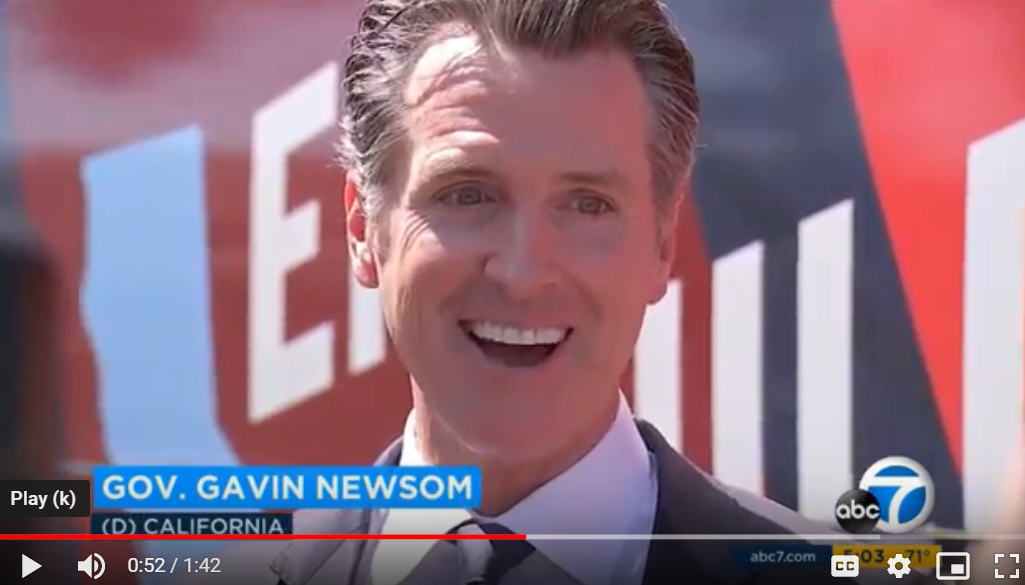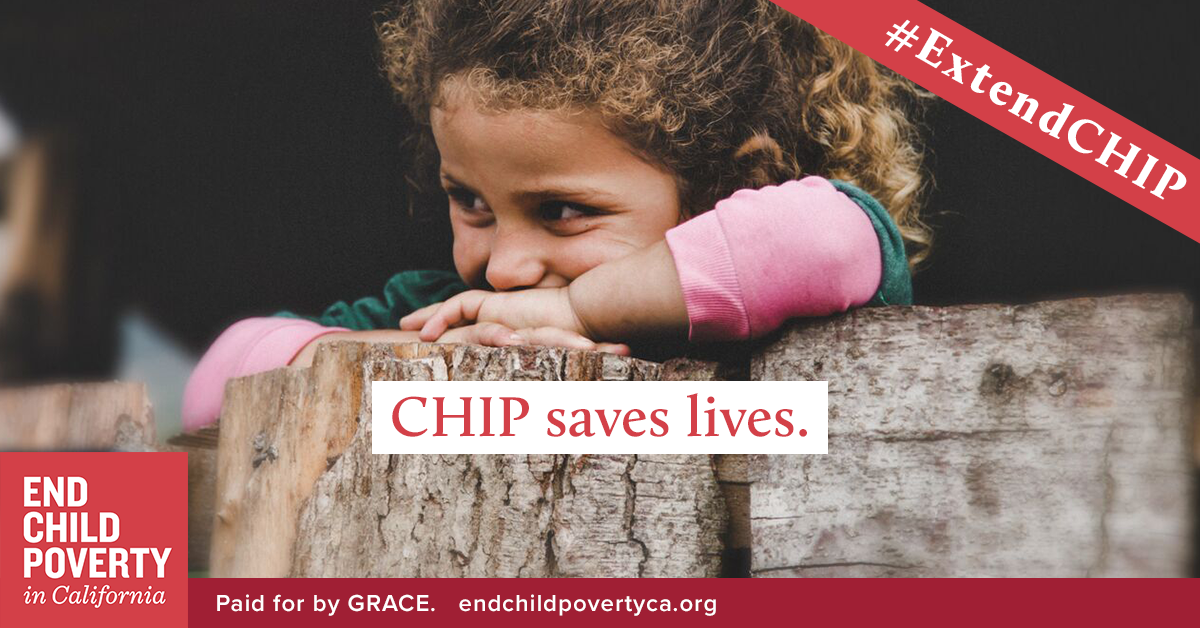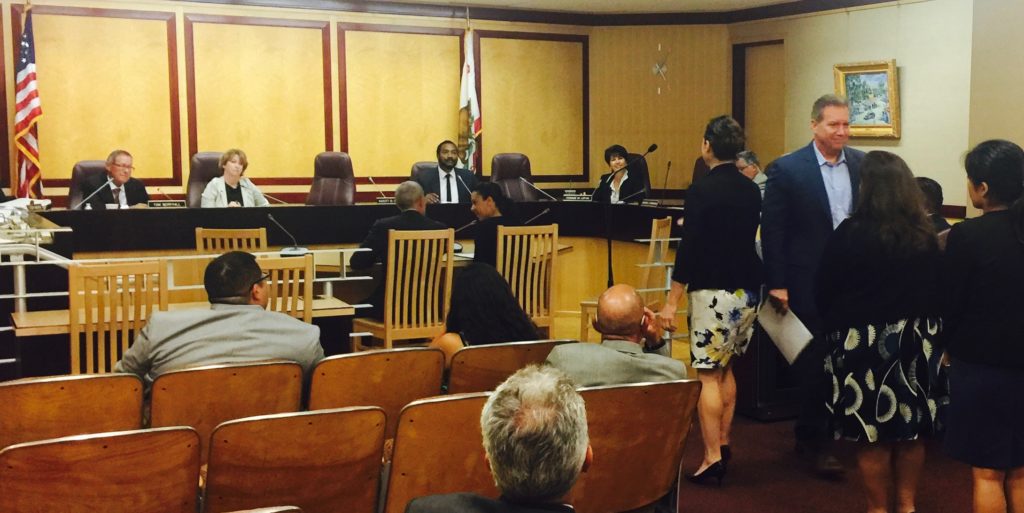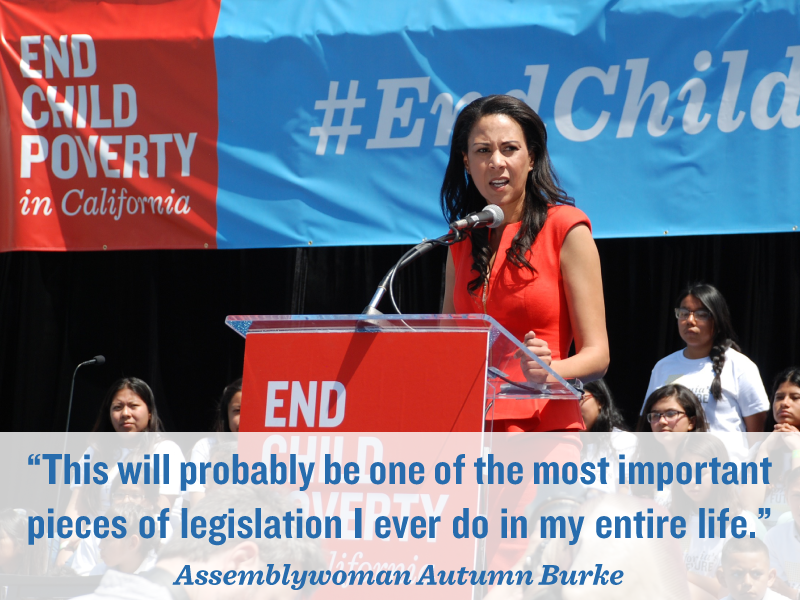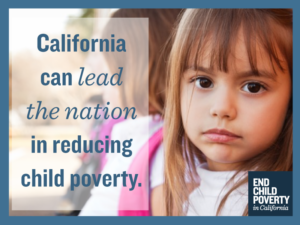End Child Poverty CA Coalition 2019-2020 Budget Wins
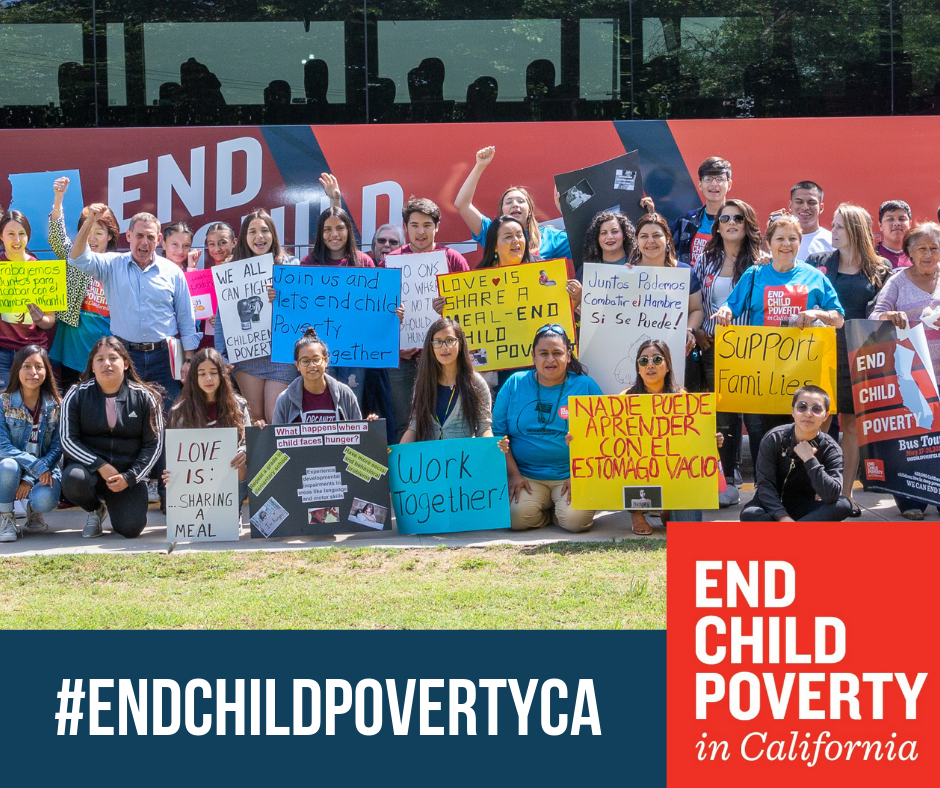
The final California state budget allocates almost $5 billion toward investments called for in the State Lifting Children and Families Out of Poverty Task Force’s End Child Poverty Plan.
State legislation created the Lifting Children and Families Out of Poverty Task Force to develop an anti-poverty plan that was released just before the new governor and legislature took their oaths of office in January. The End Child Poverty in California Coalition of 50+ partners rallied people, organizations and elected officials to adopt the Task Force’s End Child Poverty Plan, which would end deep child poverty in just four years when fully implemented. The End Child Poverty Plan would also reduce overall child poverty by 50 percent over the next decade.
As a result, the final state budget includes unprecedented investments to address deep child poverty. Furthermore, several pieces of legislation and budget proposals have been introduced to implement the comprehensive End Child Poverty Plan.
“This budget represents an unprecedented strategic investment to address poverty and inequality in California. Make no mistake, however — this is a down payment. Fully funding the Task Force’s plan would end deep child poverty in California in four years, and our campaign will keep working with our elected officials and all Californians to do just that. Thank you to the Governor and the Legislature with leaders on both sides of the aisle and across the political spectrum for their unprecedented action to help kids and families,” said Conway Collis, co-chair of the Lifting Children and Families Out of Poverty Task Force, and CEO of GRACE and End Child Poverty in California.
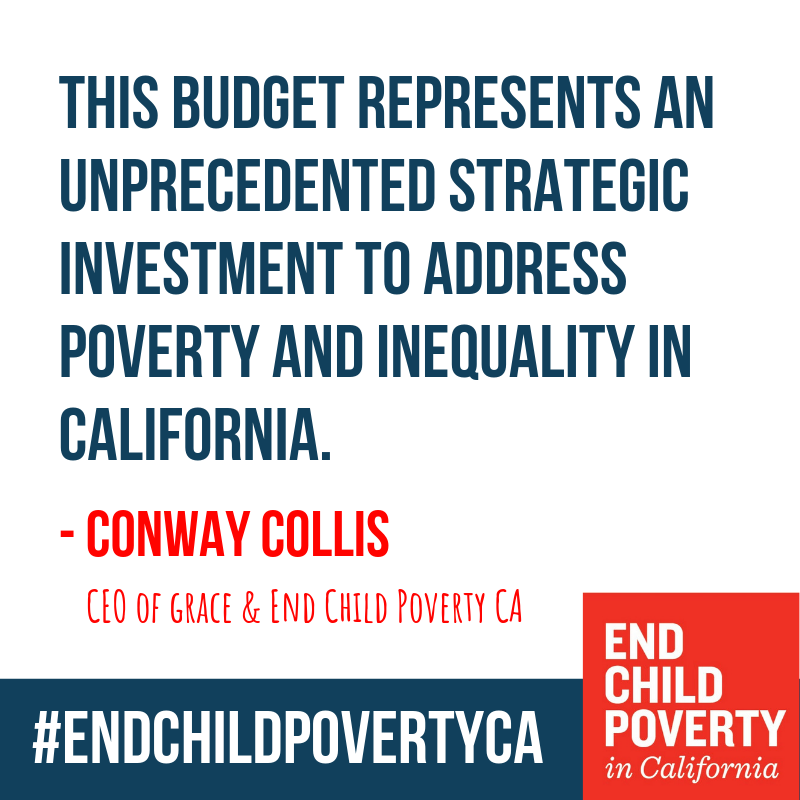
450,000 California children live in deep child poverty. If concentrated as a population, those children would comprise the state’s eighth largest city — larger than Oakland, twice as large as San Bernardino, and just smaller than Long Beach. When fully realized, savings generated by lifting these children from poverty would total $12 billion annually, on an ongoing basis, representing a dramatic return on investment.
“We could not have done this without the broad-based coalition of anti-poverty advocates, faith-based organizations, non-profits, education advocates, business and labor who worked tirelessly to build support for this important victory. This budget is a reflection of the beginning of a sea change, with ending child poverty in California, as the Governor has stated, his North Star. We have more to do, but this is a significant step in the right direction and we are looking forward to continuing our work with this coalition, the legislature and the Governor,” said Jackie Thu-Huong Wong, Vice President for Policy and Advocacy at GRACE and End Child Poverty in California.
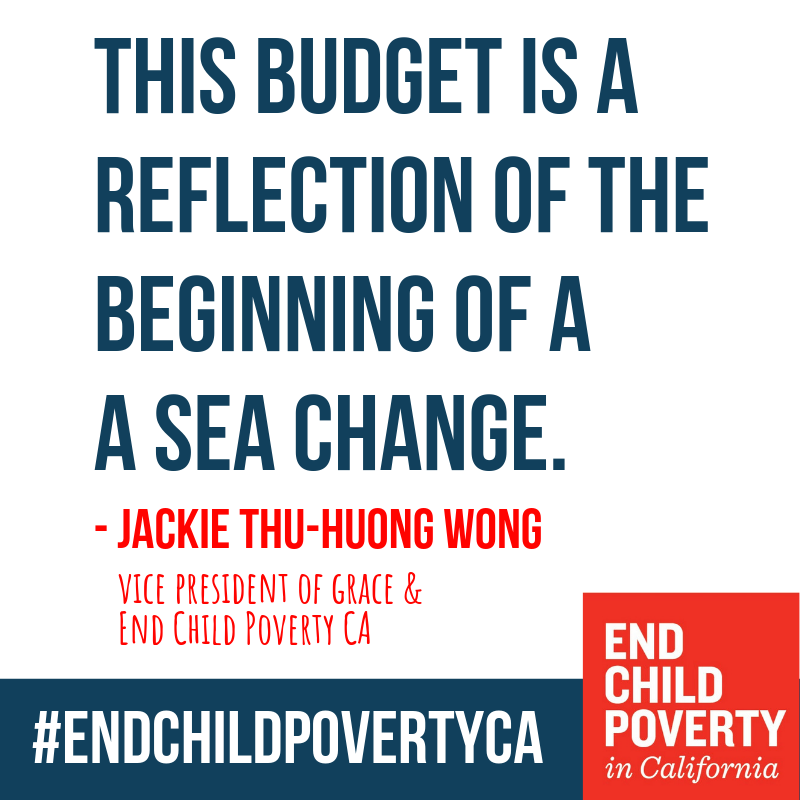
California has the highest number of children and highest percentage of children living in poverty of any state in the nation — almost 2 million children, who represent one out of every five California kids. Deep poverty is defined as families living at or below 50 percent of the federal poverty line, or less than about $12,500 for a family of four. In addition, 204,000 California children experience homelessness.
Infographic: Key End Child Poverty CA Coalition Budget Wins
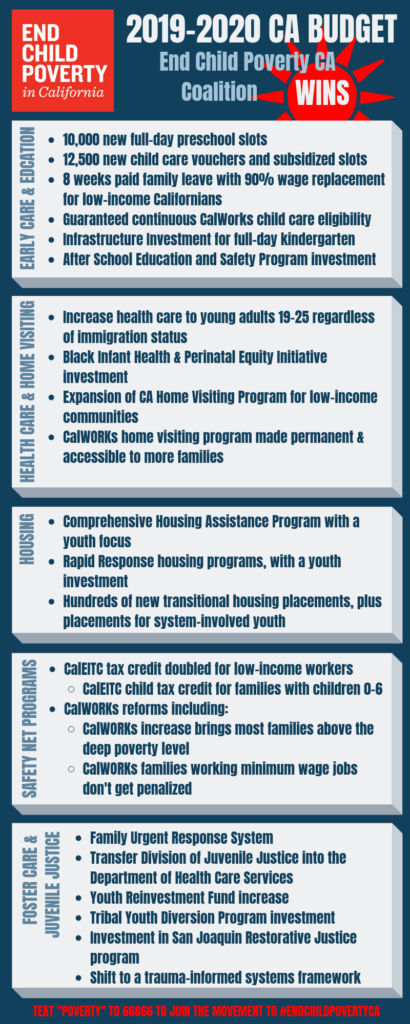
Additional CA Budget Information & Reactions
- State budget analysis from our coalition partner Western Center on Law & Poverty: click here.
- Budget statement from CalEITC4Me on the California Earned Income Tax Credit expansion: click here.
- Statement on child care wins from our coalition partners Parent Voices & Child Care Law Center: click here.
- Article in Vox on the CalEITC expansion in California and its national relevance: click here.
- Additional information on the End Child Poverty Plan: click here.
LA Times story on the release of the End Child Poverty Plan: click here.
